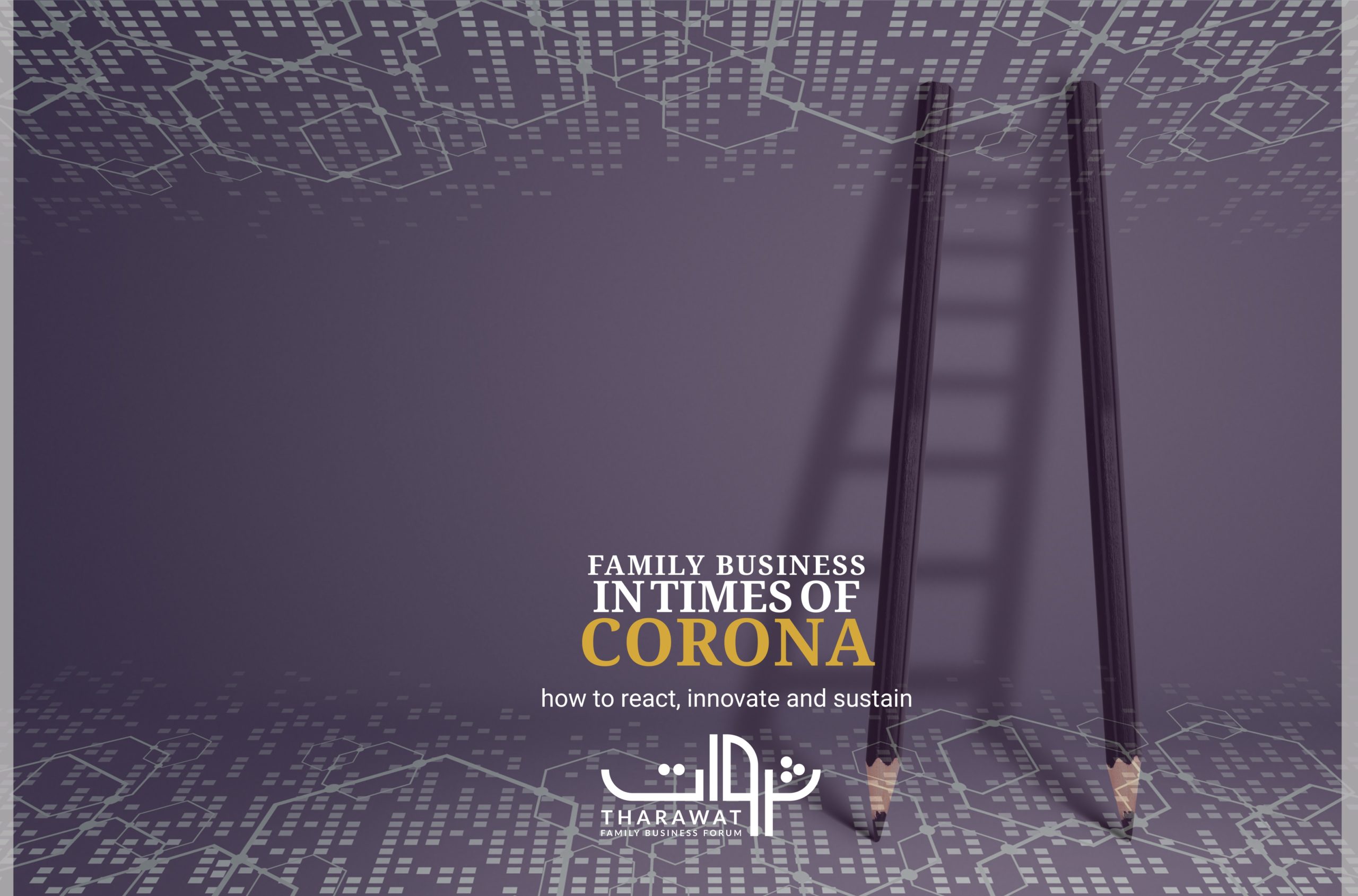
COVID-19: Opportunity in Crisis
Opinion piece by Slim Othmani, NCA-Rouiba
Slim Othmani is a leading family business member and entrepreneur from Algeria and Tunisia. He is the Co-Founder of the Algerian Drink Producers Association and sits on several company boards in the MENA region. Othmani is also the Founder and the President of Algeria’s first think tank, CARE.
With COVID-19, not only family businesses, but all businesses face an unprecedented challenge. Our new normal – a world reeling in the midst of a pandemic – poses financial, mental and emotional threats that will likely persist even after the threat to our health has abated. In many ways, this pandemic is a great equaliser; no region is exempt from its hold. In North Africa, much like every other region, COVID-19 is hurting families, hurting family businesses and testing resilience. That said, the ability and resources of governments to respond to this crisis are not always equal, and so responsibility, in part, falls to the private sector.
Family businesses in North Africa grapple with an additional layer of complexity as they must encourage and support government efforts to aid communities in crises, and attempt to save economies that are sputtering. Unlike multinational organisations that benefit from deep and diverse resource pools, however, most family businesses have limited tools that can be deployed for a finite period. The urgency of this crisis, coupled with these unique time restraints on family businesses, means that decisive action now may not only mean survival in the interim, but it could also lay the foundation for survival in the future, and there is no shortage of opportunities:
Operational Opportunities
When business slows, everything from operating models and organisational roles to team compensation can be viewed with a new sense of clarity. COVID-19 represents a real-world sustainability litmus test for family businesses. Supply chains that fail or wither during a pandemic are likely to remain vulnerable when the next downtown hits. Inequality in relation to compensation and job output becomes more pronounced when daily operations lag. For example, highly skilled engineers are important fixtures in many organisations, but companies now have an opportunity to determine whether they are 40 times more vital, as their salaries would suggest, than warehouse workers who keep the supply chain moving.
Revaluation now will greatly benefit organisations in the mid to long-term.
Environmental Opportunities
Coronavirus has reinforced the importance of environmental sustainability. A decrease in air pollution due to the en masse reduction in automobile emissions has enabled entire cities to breathe better, and provided a glimpse of what can, and should be a priority for the future.
In-person meetings, once thought of as operational necessities can be just as effective, and more much environmentally sustainable, through digital tools like video conferencing.
The family business community should take this opportunity to influence a shift in the way government agencies function, encouraging them to adopt the same forward-looking mechanisms that will ultimately lead to better air, safer food and cleaner drinking water for everyone.
Community Opportunities
While bettering their organisations, improving working environments, boosting family relationships and finding environmentally friendly paths to pursue, family businesses must also promote these initiatives in the collective space.
Family firms make up the world’s largest business community, representing 90 per cent of the global economy, and with that power comes significant responsibility.
Family businesses can and should be agents of change. Family business responsibility extends far beyond the company itself. They should push for the same positivistic change externally, in their associations, partnerships and communities, that they adopt internally.
Opportunity for Renewed Solidarity
Perhaps greater than in any other region, family businesses in the MENA share unifying commonalities.
This crisis presents an opportunity for family businesses to strengthen each other even as they bolster their own operations.
The transformative initiatives a family firm takes on at this time can accomplish much, but as a collective, family businesses in the region can achieve anything. As a united front, family businesses in the MENA can identify and confront common political and bureaucratic foes. But perhaps even more consequential, through conviction and resiliency, family firms can vanquish the insidious foe that is fear.
Slim Othmani, is the Chairman of NCA Rouiba, in Algeria.
It was in 1999 that he joined NCA-Rouiba, a company founded by his father and grandfather, specializing in fruit juices and drinks, and held the position of managing director in 2010, then chairman of the board of directors.
In 2003, he founded the Circle of Action and Reflection around the company (Care), which he has chaired since 2012. Slim was the founder and president of the Association of Algerian Beverage Producers (APAB), as well as the founder and president of Injaz El Djazair, an association aimed at promoting entrepreneurship in Algeria. He is also a founding member of the Algerian governance institute Hawkama El Djazair and a founding member of the Maghreb Economic Forum (MEF) based in Tunisia.
